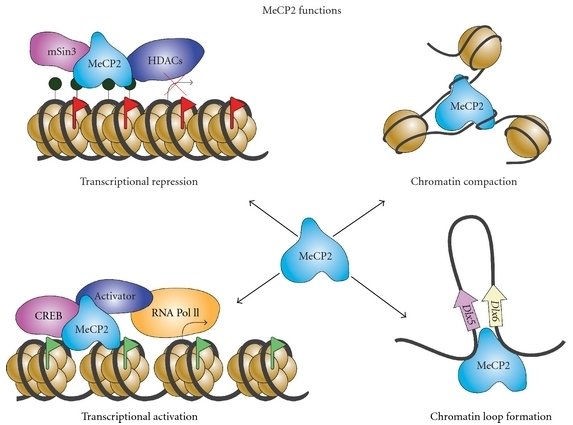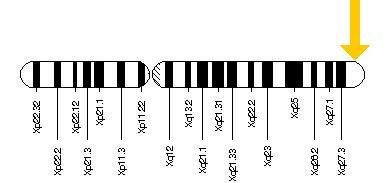Rett Syndrome
Kate Sears
Neuroscience II
History and Prevalance
-
Discovered in 1966
-
Recognized in 1983
-
Approximately 1 in 8,500-15,000 girls
-
Extremely rare in boys
Symptoms
-
Slowing of Head Growth
-
Reduction of Brain
-
Cognitive Impairment
-
Autistic-Like Features
-
Prognosis is poor
Symptoms
Stages of Rett
I: Early Onset or Subtle Slowing of Development
II: Rapid Destruction of Development
III: Pseudo-Stationary or Plateau
IV: Late Motor Deterioration
Classification
-
Neurodevelopmental and Neuropsychiatric
- Misdiagnosed
- A Combination of Disorders and Syndromes
- Controversy over DSM-V
Genetics
-
Gene Identified in 1999
-
Spontaneous Mutation (De Novo)
-
Germ Cells, usually paternal
-
X-Linked
-
X-Inactivation
Epigenetics
Changes that occur after initial action of genes that affect chromosomes or nucleotides but not the original DNA sequence.
- MeCP2 is a known epigenetic factor
- X-Chromosome Inactivation
- "reader" of DNA methlyation markers
http://www.resverlogix.com/programs/epigenetics#.VTbBKiFViko

MeCP2
- Methyl CpG binding protein 2
-
Found in Neurons and Glia
-
Basic Nuclear Protein
-
Loss of function
-
Transcriptional Repressor
http://www.intechopen.com/books/chromatin-remodelling/rett-syndrome.

MeCP2 Function
- Exact Function Unclear
- Gene Expression
- Chromatin Modification
- In the brain: Maintaining Synapses
- Alternative Splicing
MeCP2
- Regulates the Regulators
- Modified by environmental factors and neuronal activities.

http://ghr.nlm.nih.gov/gene/MECP2
Current Research
Links to Autism
- Environmental Factors
- Parental Health/Age
- Neurotransmitters
MeCP2 Research
Four exons: Infinite expression
- "Multi-Functional Global Regulator"
- Mutation location and type correlated to diseases
Gene Therapy
Systemic Delivery:
MeCP2
IGF-1
BDNF
Questions?

Rett Syndrome
By Kate Sears
Rett Syndrome
- 546



